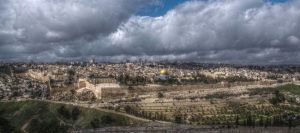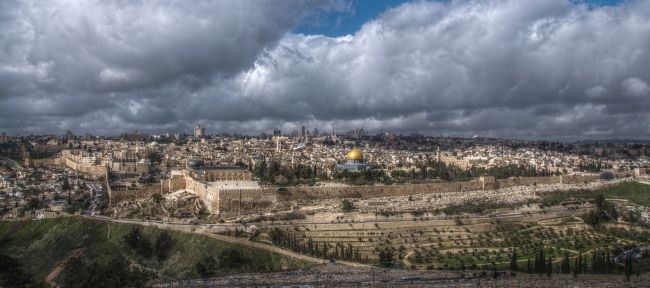
Throughout this final oration of Moshe, he constantly emphasizes that when the Jewish people finally cross the Jordan and enter the land of Israel there are additional commandments and behavior patterns that will be demanded of them. He reiterates that the land of Israel is bountiful and beautiful, blessed and holy but he warns them that this is a venue that makes demands upon its inhabitants.
The rabbis of the Talmud reinforce this idea by stating that the land of Israel inflicts growing pains upon those that come to live there. It will always be a place of challenges and problems, of difficulties and situations that will have to be overcome. But it is also the land where the eyes of the Lord so to speak are upon it throughout the year and that living in such a land is replete with great opportunities and a sense of mission and holiness.
Neither its topography nor weather patterns, its agricultural bounty and prosperity are to be deemed as ordinary and natural. It is the ultimate land of unpredictability, for its well-being and blessings are wholly dependent on the behavior of its inhabitants and, naturally, on the will of God.
As such, the land is always subject to the behavior and attitudes of its human inhabitants. It is the land of ultimate free will and freedom of choice that the Lord has endowed human beings with. Moshe constantly reminds the generation that is about to enter the land of Israel of their obligations and duties to God and to Torah. This will be the key to their success and longevity in the land of Israel.
We are now participating in the third major effort of Jewish society to live in the land of Israel. Throughout our long exile we have always aspired to return here and to build a Jewish society in the holy land worthy of our ancestors and the great prophets of Israel. Many of the reasons why our first two attempts to establish such a permanent Jewish society here failed are unfortunately still present.
Many past ills such as idolatry and the lack of national pride no longer really govern our thoughts or tempt our behavior. It is difficult to imagine that we would have learned nothing from history and would, God forbid, repeat all the past errors of first and second Temple times. Yet, we all realize that the challenges that face us are great and that the road we traverse is still difficult and dangerous.
There are many distractions and obstacles that face us in trying to create a Jewish state that Moshe envisioned centuries ago. Yet, if we look back at how far we have come, against all odds and many enemies, we should be able to realize that it is within our grasp to fulfill the words of Moshe as they appear in this week’s Torah reading. It is clear that we live in a special place and in special times. As such, we have to rise to the occasion and be a special people.
Shabbat shalom
Rabbi Berel Wein


